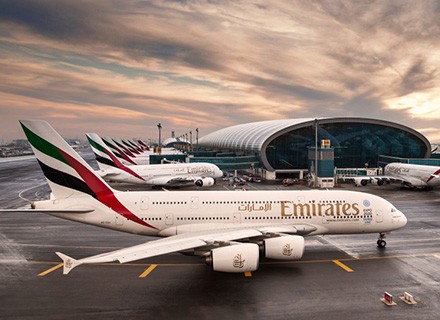The activities of the Dubai long-haul carriers are expanding in several international markets as travel demand rises amid further relaxations in COVID-19 restrictions.
Due to escalating demand, the airline will be now expanding its services to Sydney and Melbourne, two critical Australian cities.
In addition, the airline has revealed plans to increase frequency to Hong Kong and relaunch its flagship A380 in Casablanca, Morocco.
Ahead of the Chinese New Lunar Year and its resultant high demand for travel, Emirates would also ramp up its China operations.
From March 26 2023, there will be two to three daily services between Melbourne and Emirates’ Dubai hub via Singapore; with a third direct service to Sydney slated to begin from May 1. The service increase follows the airline’s recent announcement about doubling its daily flights to Brisbane from June 1. The two services will operate on a three-class Boeing-777 300ER.
By mid-2023, Emirates will be operating 63 weekly services to Australia with the capacity to transport more than 55,000 passengers per week to and from its major cities.
Emirates has been serving Australia for more than 25 years. Australia said in July 2022 that it would no longer need travellers to produce proof of immunization. But as of January 5 2023, the government mandates that travellers from China, including those from Hong Kong and Macau, provide evidence of a COVID-19 test result that was negative before departure.
Meanwhile, Emirates also took a step closer to its first flight using sustainable aviation fuel after successfully completing ground engine testing.
One of the GE90 engines on a Boeing 777-300ER used 100% sustainable aviation fuel (SAF) while the other ran on regular fuel as the airline analysed if the engine can run on specially blended 100% SAF without affecting its performance, requiring no modifications to the aircraft systems, or special maintenance procedures on the aircraft or the engine. SAF reduces carbon emissions over the fuel’s life cycle by up to 80%.
The test results will now pave the way for the airline’s first experimental test flight using 100% SAF in one engine in January 2023. The testing of two engines running on two types of fuel will help better analyse the fuel system’s behaviour and performance under each type, apart from comparing specific outputs of each engine and ensuring seamless operation of the aircraft’s engine and airframe fuel systems during the planned test flight.
In 2022, Emirates, GE Aerospace and Boeing signed a Memorandum of Understanding (MoU) to develop a programme for conducting a test flight using 100% SAF on an Emirates 777-300ER powered by GE90 engines.

